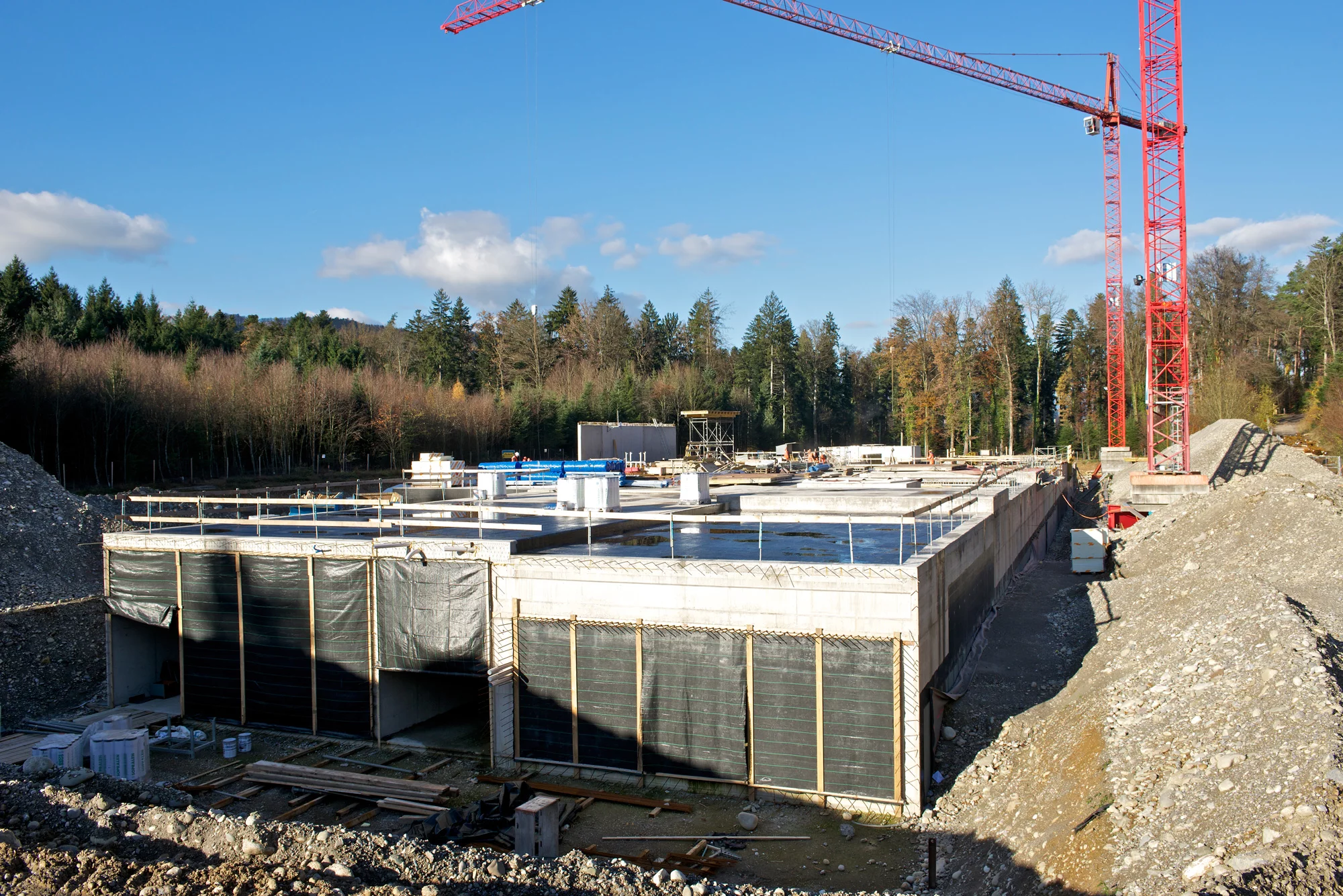The construction work in the woods is well underway: the building for SwissFEL, the Paul Scherrer Institute’s new large research facility, is due for completion by the end of 2014. The demands on the building are high: It needs to ensure that the sensitive equipment can run smoothly.
SwissFEL will be approximately 740 metres long. Along this length, electrons are extracted, accelerated and made to emit x-ray pulses, which are then focused at the experimental stations. SwissFEL is high-tech. All the machine parts have to be precisely crafted and their operation tightly synchronised. Nothing can be allowed to perturb the operation of this sensitive facility.
Consequently, the demands on the building where the facility is housed are equally high. The utmost precision is called for: even the deflection due to the earth’s curvature, only a few centimetres over the length of the facility, needs to be compensated.
Precise, comfortable temperature
Moreover, the sensitive machine components require a constant ambient temperature that may only vary within stringent limits. This is particularly true for the beam tunnel, where the linear accelerator is located, and the undulator hall, where the x-ray pulses are generated – both of which need to have a temperature of precisely twenty-four degrees Celsius: the variance tolerated is only one tenth of a degree.
In order to achieve this precision, temperature pre-stabilised air from the experimental areas is blown through the tunnel and monitored using special sensors. Temperature variations due to the heat generated by the machine components themselves are offset with ventilation control systems. Furthermore, the building insulation provided by the surrounding soil is dimensioned to guarantee additional stabilisation.
Please do not shake
SwissFEL is also highly sensitive to vibrations and shock waves. A simple busy road in the direct vicinity can jeopardise its smooth operation – one reason why, after various locations had been eliminated, only the site in the woods, at a safe distance from potential sources of interference, ultimately could be considered.
However, the operation of the facility infrastructure itself causes shaking and vibrations, which is why the beam tunnel and the undulator hall, which are particularly sensitive, are structurally completely detached from the other building components.
Saving energy the top priority
SwissFEL is the world’s first energy-optimised x-ray free electron laser. Its power consumption will be reduced by up to fifty per cent compared to similar facilities, and it is the only x-ray free-electron laser to have a heat recovery system.
Energy efficiency is emphasized right down to the minor details. The barely visible façades are heat-insulated and, where possible, windows and glass exterior doors are dispensed with. Moreover, the use of the surrounding soil to stabilise the temperature also helps minimise power consumption.
The SwissFEL building is due for completion by the end of 2014, after which the installation of the technical components can get underway. The facility is expected to commence operations at the end of 2016.
Text: Martina Gröschl
Laying of the corner stone for the new large research facility SwissFEL

